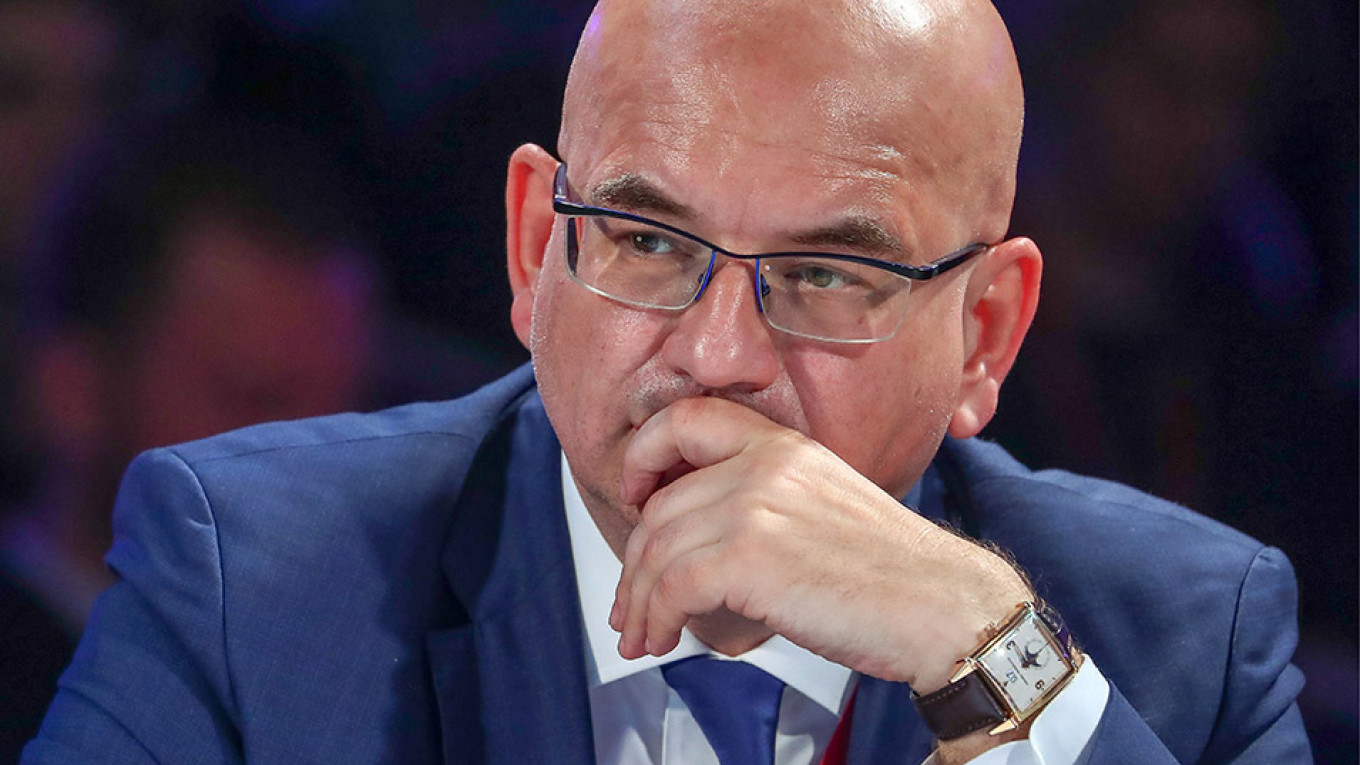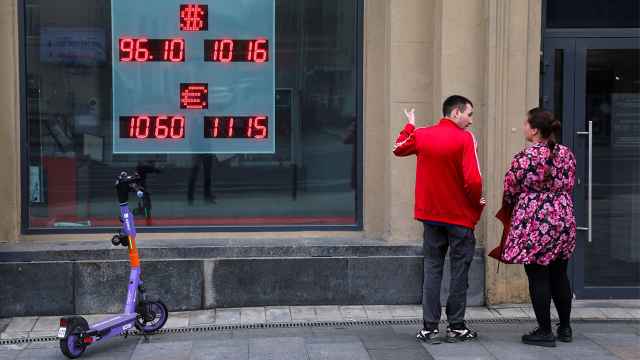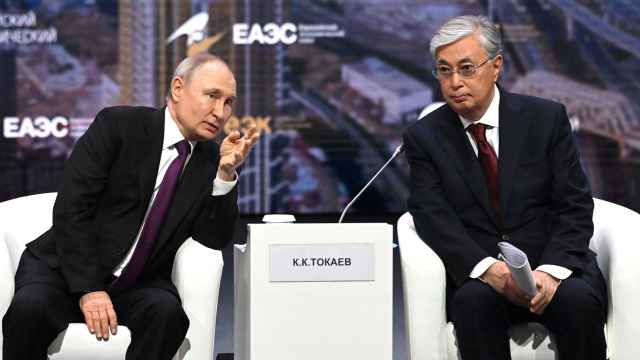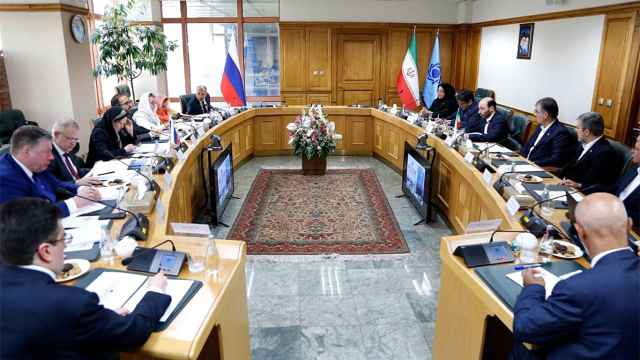Alexander Ivlev believes the rules of the game are changing.
The managing partner of auditing giant EY’s Russia and CIS arm is preparing for the emergence of a new world order and the creation of an alternative economic model, born out of the breakdown of the U.S.-dominated world and Europe’s pivot to the East.
“In 15 years, I would say, the world will face an absolutely new reality: A Eurasian economic kind-of union, which will include Asia, Central Asia, Europe and Russia,” he tells The Moscow Times in an interview in EY’s embankment headquarters overlooking the Moscow River.
These are strong words from the Russian head of a global organization. But for Ivlev, who started his career in 1991 as a diplomat working on U.S.-U.S.S.R. relations in the final days of the Soviet government, dramatic shifts in global alliances and the emergence of new economic unions make discretion pointless. His focus is simply on how Russia — and EY — can capture the benefits of the changes.
The end of U.S. economic dominance, and the possibility of a new super-union stretching from London to Tokyo, is a historic chance for Russia to realize its geographic potential, Ivlev says.
“It’s a unique opportunity to really build up a bridge and connectivity between Europe and Asia … it’s pretty obvious that the country will benefit from the change in supply-and-demand on the global scale,” he says.
According to Ivlev, specific opportunities for the country’s businesses include the development of agriculture, better exploitation of Russia’s natural resources, the chance to boost the domestic innovation and technology sector, and trade focused on countries like China, India and Malaysia.
For EY — already Russia’s largest professional services group with 5,500 employees across the CIS and more than 17 billion rubles ($260m) in annual revenue — it also means a pivot to the East.
Since the 1990s the professional services industry has been pulling its center of gravity away from the West through a process of so-called Russification. The 80:20 ratio of foreign to domestic clients that existed when Ivlev joined EY in 1995 has completely flipped, as has the presence of expats at the top of the firm.
“Nowadays it’s a true Russian partnership,” he says, estimating that 98% of employees are domestic hires.
But the move from West to East isn’t over yet. Ivlev plans to hire more specialists in Moscow to serve growing demand from Chinese firms, investors and joint ventures. A recently opened Chinese business desk — a mini bureau within EY Russia staffed by native Chinese speakers and country specialists — is a move in that direction.
Ivlev, who sits on a string of government advisory bodies and investment committees, is as comfortable discussing geopolitical trends as he is business opportunities. He says the two are connected, and that a new role for Russia in the world and new markets for Russian firms mean more opportunities for EY.
Ivlev is an advocate not only of Russian business, but of Russia as a place the rest of the world should be doing business. Even in its recent economic malaise, he sees opportunity.
“If your company is not in Russia yet, you have an opportunity to enter the market in the cheapest way possible because of the devaluation of the ruble,” he says.
He highlights the government’s achievements in attracting foreign investment to Russia’s Far East and says the country is doing “really well” in its relations with India, also pointing to the need for Russia and the U.S. to “reconsider how we work together to protect the world, protect our kids and protect our countries.”
Outside of EY, Ivlev is chairman of the supervisory board of the Russian anti-doping agency (RUSADA). He was appointed in 2017 as part of the organization’s cleanup mission following the exposure of the state-sponsored doping program around the 2014 Sochi Olympics, and wrote in the 2018 annual report: “For me, as a citizen, it is very important that our country maintains the status of a sports power.”
Despite his boldness in talking about how Russia can benefit from a new global economic system, Ivlev is guarded when it comes to suggesting what the government could be doing right now.
“Do you really want to talk about it?” he jokes in response to a question about how the government can improve the environment for Russian entrepreneurs and startups.
“Ok, I can give you the official version,” he says, retelling the familiar story of how Russia went from being a country that had outlawed private enterprise for decades through the shock reforms, oligarchs and corruption of the 1990s to President Vladimir Putin and the government’s revival of entrepreneurship around 2010.
“They launched the national entrepreneurship initiative … There were a lot of institutions created to support entrepreneurs financially. These things started to really help,” Ivlev says.
In line with the government’s own thinking, he adds that it’s not yet enough though, and points to the success of countries like Israel and Finland, where “50 or 60% of GDP comes from entrepreneurs.” Figures released this week show that Russia’s 500 largest companies account for more than 80% of GDP.
So, what does the EY boss think Russia should do to solve the problem?
“Businesses need predictability and stability. Just don’t interfere — let them do their stuff.”
A Message from The Moscow Times:
Dear readers,
We are facing unprecedented challenges. Russia's Prosecutor General's Office has designated The Moscow Times as an "undesirable" organization, criminalizing our work and putting our staff at risk of prosecution. This follows our earlier unjust labeling as a "foreign agent."
These actions are direct attempts to silence independent journalism in Russia. The authorities claim our work "discredits the decisions of the Russian leadership." We see things differently: we strive to provide accurate, unbiased reporting on Russia.
We, the journalists of The Moscow Times, refuse to be silenced. But to continue our work, we need your help.
Your support, no matter how small, makes a world of difference. If you can, please support us monthly starting from just $2. It's quick to set up, and every contribution makes a significant impact.
By supporting The Moscow Times, you're defending open, independent journalism in the face of repression. Thank you for standing with us.
Remind me later.







